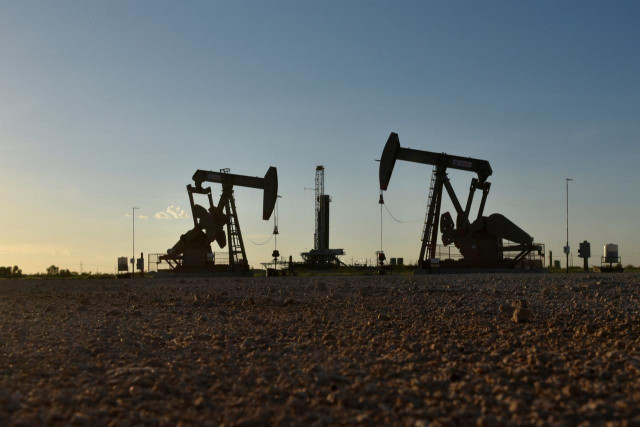Divestment of Mari shares hits snag
Anti-corruption watchdog raises questions over exploration activities

The divestment of government of Pakistan’s remaining shares in Mari Petroleum has been held back due to observations made by the anticorruption watchdog.
Sources told The Express Tribune that a meeting was held in the first week of January at the Privatisation Commission to discuss the divestment of Mari Petroleum’s shares.
The meeting was chaired by the privatisation minister and attended by officials of the Petroleum Division as well as others.
The participants were apprised that in a meeting held on August 5, 2019, both joint venture partners - Fauji Foundation and Oil and Gas Development Company Limited (OGDCL) - agreed to bear cost on a pro rata basis (based on their respective shareholdings) of procuring an audit certificate for independent and fair assessment of the share value by the company’s auditor.
However, the matter got stuck when the Petroleum Division in a letter issued on May 8, 2020 made some comments regarding the divestment of 18.39% government shares in Mari Petroleum.
The Petroleum Division said that it was examining the internal record to ascertain the exact amount of government funding for Mari Petroleum.
The Petroleum Division, in addition to the audit of accounts by the AGP Office, was also seeking advice from the National Accountability Bureau (NAB)/ Federal Investigation Agency (FIA) regarding its observations on the dismantling of Gas Purchase Agreement (GPA) in 2014.
After the completion of entire exercise, the Economic Coordination Committee (ECC) of the cabinet will be informed accordingly.
In Mari Petroleum, the government has a 20% stake, OGDCL holds another 20% shareholding, Fauji Foundation has a 40% stake and the general public holds 20% shares.
Earlier, Mari Petroleum had been working under the “cost-plus return on equity” formula, but the government scrapped it later in order to increase the wellhead gas price from $0.37 per million British thermal units (mmbtu) to $2.17 over the next five years.
Under this formula, the expenditure limit for the company is $40 million per year. The limit was increased from $20 million to $40 million.
However, after dismantling the gas pricing formula, the funding stopped. It was linked with enhancement in exploration activities. However, later some quarters raised questions over the increase in exploration.
NAB and FIA also raised questions as to how much additional exploration was done when the expenditure limit was allowed to Mari Petroleum.
Removing cap on dividends SAPM on Petroleum
Nadeem Babar said that the Petroleum Division, upon seeking approval of the minister of energy, would place a draft summary for consideration of the ECC for removal of the cap on distribution of dividend by Mari Petroleum in the next fortnight.
Fauji Foundation and OGDCL reiterated their earlier agreement on pro rata sharing of costs for the procurement of audit certificate by the company, as mandated in the Participation and Shareholders Agreement (PSA).
Mari Petroleum management was advised to undertake preliminary work for engagement of its auditors and share the corresponding Terms of Reference (ToRs) with joint venture partners to seek their input, if any.
Management control
A Fauji Foundation representative expressed concern over the management control consequent to the divestment and exit of the government as a signatory to the PSA.
It was clarified that the management control of Fauji Foundation was already under protection pursuant to the PSA, which would continue regardless of divestment of government shares.
However, further modalities could be discussed only after and in case Fauji Foundation and OGDCL opt not to exercise first right to acquire the shares offered by the government.


















COMMENTS
Comments are moderated and generally will be posted if they are on-topic and not abusive.
For more information, please see our Comments FAQ